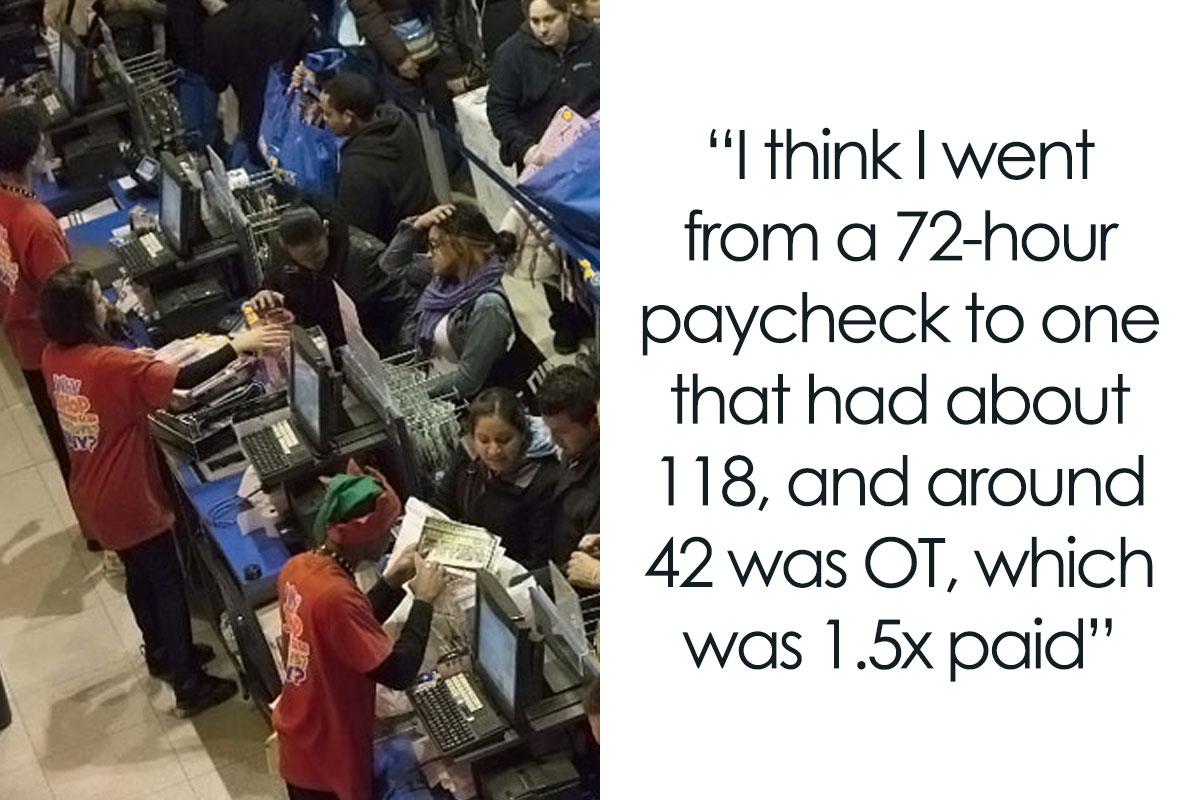
“Someone Parked Their RV In The Parking Lot”: Store Manager Authorizes All Overtime, Workers Use Every Minute Of It
Interview With AuthorPeople are remarkably effective at twisting events, circumstances, and even words to their own self-interest. We hear what we want to hear, as the saying goes. One man described a time from the past when a manager, perhaps mistakenly, said that he would approve any and all overtime, across all departments for multiple days.
Likely expecting a few workers to do some extra to prepare for the holidays, instead, nearly the entire team turned into a bastion of productivity as everyone squeezed every last drop of overtime out of the week. Upper management was not happy, but at the end of the week, deadlines were hit, many hours were clocked and management understood the true meaning of the phrase “malicious compliance.” We also reached out to the author of the post, CySecDog, to learn more.
Some businesses are notoriously stingy with overtime even when employees are willing to work
Image credits: Erik Mclean (not the actual photo)
So one worker and most of his coworkers took full advantage of the opportunity when a manager said he would approve all overtime
Image credits: m01229 (not the actual photo)
Image credits: fauxels (not the actual photo)
Image credits: Diariocritico de Venezuela (not the actual photo)
Image credits: Pavel Danilyuk (not the actual photo)
Image credits: CySecDog
Image credits: Andrea Piacquadio (not the actual photo)
We reached out to OP to learn more
Bored Panda got in touch with CySecDog and he was kind enough to give us some extra details. “Honestly, I feel like while he may have made a mistake in wording, or assuming we wouldn’t want to do a lot of overtime, I do not think it was a loss for the store. If anything he risked the bonus a lot of those managers get throughout the year. But I do not think the store lost any money, because we really needed the coverage and the store got in great shape. I think while they spent a lot in overtime, they gained more at the end of the week thanks to how prepared the store was for Black Friday. My greatest estimate for hours worked that week would be around 100 hours, which amounts to double shifts 6 days that week. If I recall correctly they did not allow people to work 7 days, we had to still have a day off but that may not have been the case for everyone. I do remember for sure someone worked 16-hour days 5-6 days that week. So about 100 adds up. Lastly, I think he made the decision for one of two reasons. One, he understood he needed all the overtime and instead of forcing it, he worded it in a way that gave us permission and to think we were taking advantage.”
“Secondly, and what I think is truly the case with previous experience, is that the manager did not think we would work as much as we did. I think he assumed many of us would pick up an extra shift or two, and not work double shifts the entire week. He got counseled at the end of the week by corporate and was mad for a short while after, which I never saw happen before. I think personally he just gave us permission to work OT and told our managers to let us work whatever shifts, and he did not think we would work as much as we possibly could. I know our direct supervisors, that managed the departments, and areas of the store, and those that reported TO the store manager seemed to think it was an error on his part and encouraged us to work as little or as much OT as we wanted, as an opportunity. Since OT was never allowed it was the one chance to get OT for those who wished it. Overall, it was a great experience. I still look back and kinda chuckle at it. Did we take advantage or did he sneakily plan this on purpose? Who knows, but we all buckled down and got paid a lot of money to get the store ready for Black Friday, and the experience was something I don’t regret.”
Image credits: cottonbro studio (not the actual photo)
Overtime comes with its own legal risks that some companies prefer to avoid
Upper management’s “default” of no overtime does have a precedent. The United States Fair Labor Standards Act of 1938 sets a standard workweek at 40 hours, anything beyond that entitles most workers to extra pay. Managers, deathly allergic to employees getting extra pay, prefer to nip the entire idea in the bud and will just blanket ban the idea of overtime. Interestingly, independent contractors do not fall under this category, as they are not employees. However, there are still cases where an independent contractor can claim overtime pay, depending on the contract they have with an entity (it’s in the name.) Furthermore, employers who attempt to get back at workers who demand overtime pay can be punished, perhaps why some companies prefer to keep the whole idea at arm’s length.
So when given the opportunity to make a pretty chunk of cash, it’s no wonder that OP and so many of his coworkers performed feats of labor one would never expect on a normal day. This is also a solid counter-argument to anyone who says that people no longer want to work. If offered more money, they will “magically” become more animated and productive, in a twist that surprises no one. The example OP gave might be the ideal example, as for just a week or so, many people can safely work long hours, beyond the regular 40 a week. But over an extended period of time, lack of rest is associated with a whole slew of major health conditions, including heart disease, stroke, chronic fatigue, and depression.
Image credits: Kampus Production (not the actual photo)
Some areas and industries struggle with a culture of overworking
Some cultures even have a word for this, for example, “karoshi” from Japanese, which roughly translates to “overwork death.” This is not a metaphorical idea related to stress, it’s a real and documented phenomenon in industries or countries that allow people to work extensive hours too long. Examples of this include a 22-year-old nurse who died of a heart attack after working non-stop for about five days and a worker at a large printing company in Tokyo, who spent roughly half of an entire year (4,320 hours) working until he too passed from a heart attack. These rules don’t just exist to prevent bosses from demanding too much, they also are around to literally keep us alive. In these cases, people worked until their bodies gave out, but there are also documented cases of workers simply ending their lives as a result of overwork.
Similarly, some companies in China operate on the 996 working hour system, which doesn’t refer to annual hours, no, it means working 9 AM to 9 PM, 6 days a week. This is a violation of the Chinese labor code, which defines a working week as 44 hours, but social pressure, both from society and internally, from the company keeps many people trapped in these sorts of jobs. Similar to the aforementioned karoshi, the 996 working hour system has been linked to numerous deaths and disorders, and nearly all (98.8%) Chinese IT workers report moderate to severe health issues, potentially as a result of overwork. Despite a myriad of labor issues US workers like OP generally don’t have to spend most of their week literally in the workplace.
Readers shared their enjoyment and OP answered some questions in the comments
I think this just goes to show how much and how hard people are willing to work if you pay them really good wages. Obviously that wouldn't be sustainable at that level all year, since it's not always holiday season, but the truth the more people get paid in the service industry, the more they are willing to work, the harder they'll bust a*s, and the more profit most companies will reel in. When Seattle switched to 15/hr min wage, many small businesses were against it initially, but then they quickly realized they were getting a boost in sales, and *more* small businesses actually opened up, because here's the shocker.... The massive number of people in the service industry suddenly had enough money to partake in the economy instead of just juggling bills and feeding the student loan monster. It's almost like paying people living or even family wages, increases work ethic and boosts the economy.
I was a shift manager of my local store of THE biggest retail corporation (starts with a W), in my local small town in the late '90's. I ran the sales printouts at the close of the day, after closing out every till and cashier in the store. Small town, maybe 20-25,000 population in surrounding area. This was all before online shopping. I would be floored when I ran numbers at night on days between Thanksgiving and week after Christmas!! Most daily sales would be over ONE MILLION DOLLARS!!! Holy c**p, moving that kind of money from such a small Southern Oregon retail store, in just a single day was jaw dropping back then.
I think this just goes to show how much and how hard people are willing to work if you pay them really good wages. Obviously that wouldn't be sustainable at that level all year, since it's not always holiday season, but the truth the more people get paid in the service industry, the more they are willing to work, the harder they'll bust a*s, and the more profit most companies will reel in. When Seattle switched to 15/hr min wage, many small businesses were against it initially, but then they quickly realized they were getting a boost in sales, and *more* small businesses actually opened up, because here's the shocker.... The massive number of people in the service industry suddenly had enough money to partake in the economy instead of just juggling bills and feeding the student loan monster. It's almost like paying people living or even family wages, increases work ethic and boosts the economy.
I was a shift manager of my local store of THE biggest retail corporation (starts with a W), in my local small town in the late '90's. I ran the sales printouts at the close of the day, after closing out every till and cashier in the store. Small town, maybe 20-25,000 population in surrounding area. This was all before online shopping. I would be floored when I ran numbers at night on days between Thanksgiving and week after Christmas!! Most daily sales would be over ONE MILLION DOLLARS!!! Holy c**p, moving that kind of money from such a small Southern Oregon retail store, in just a single day was jaw dropping back then.

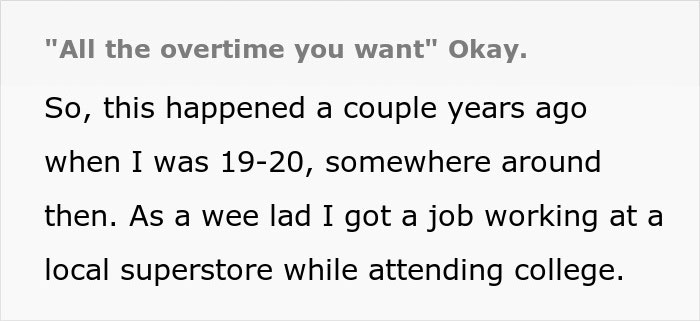
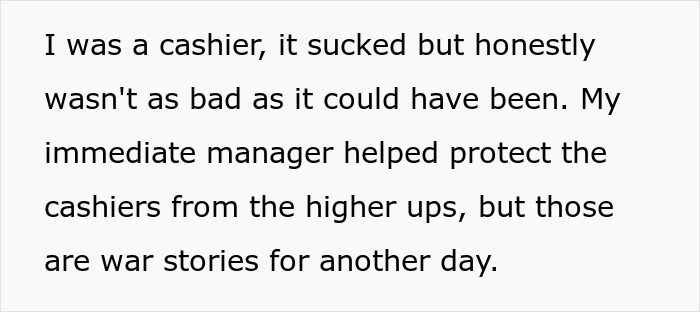
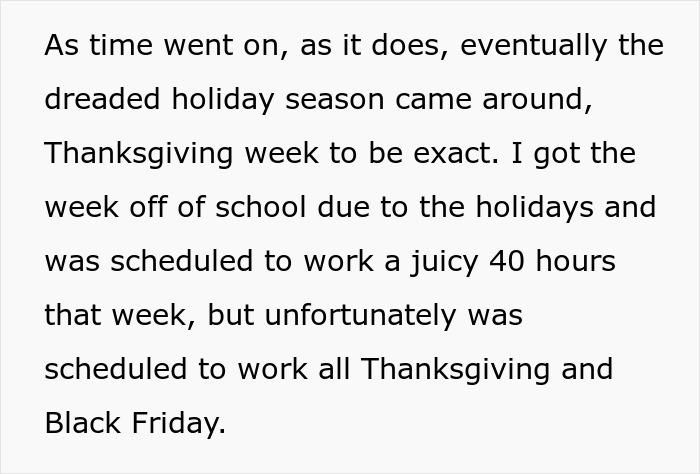
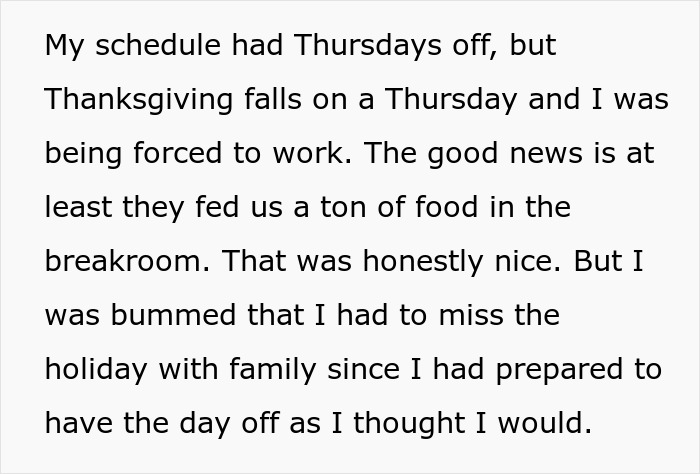

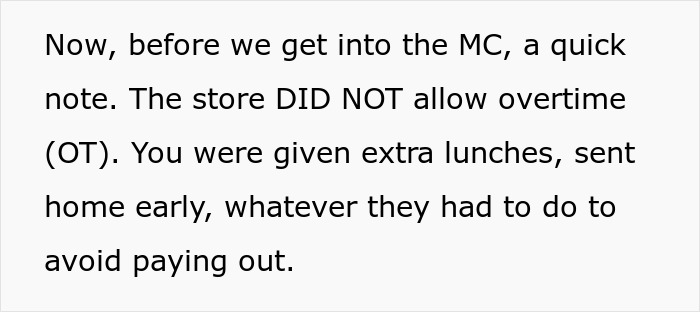
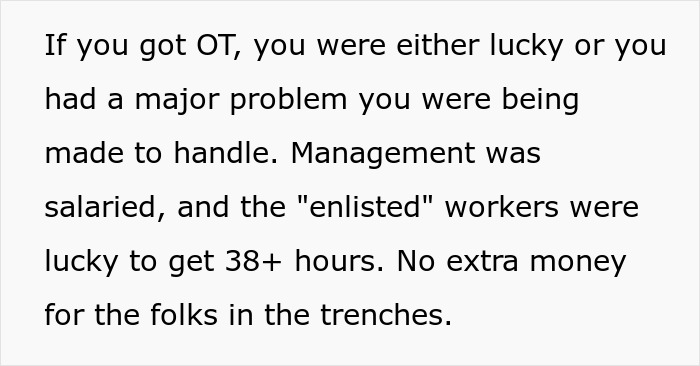
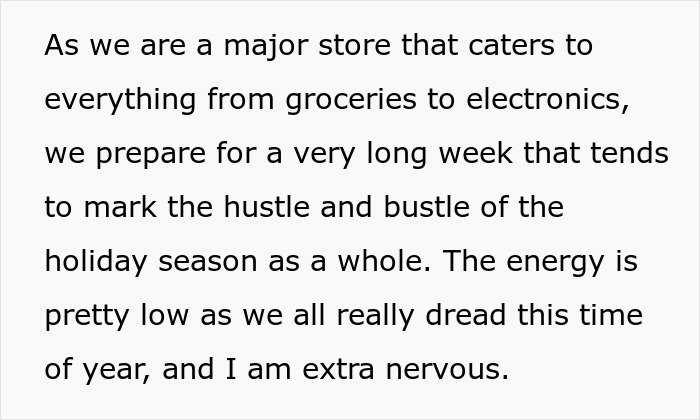
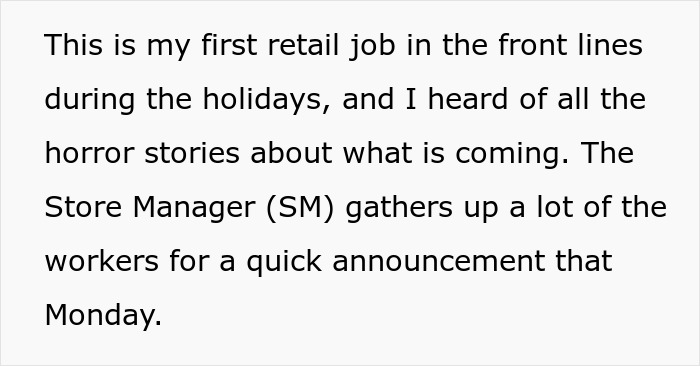

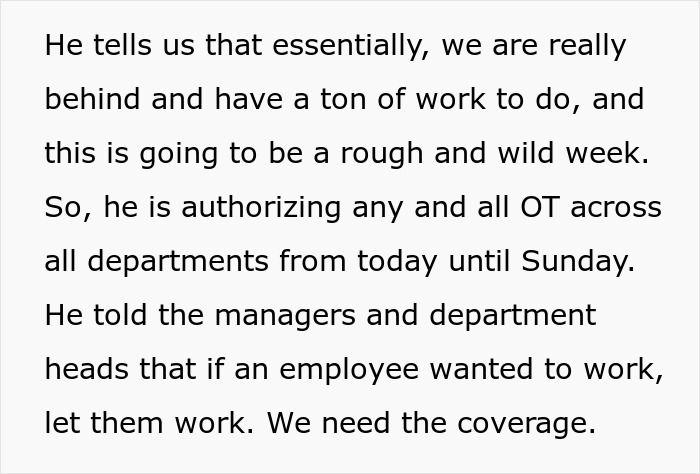
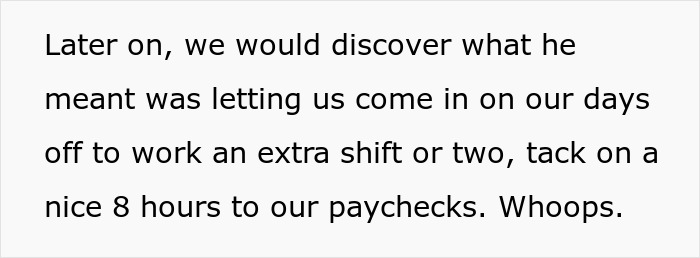


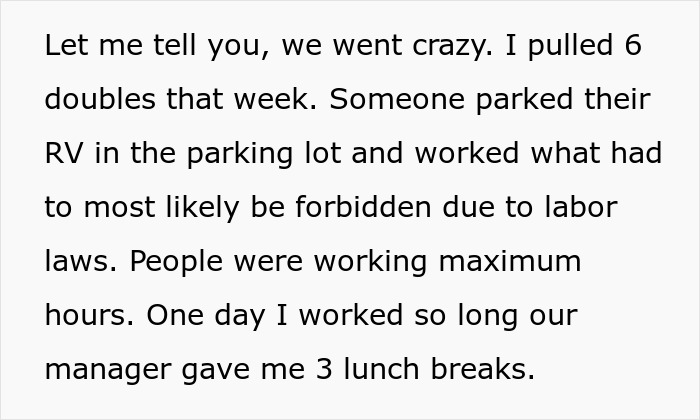
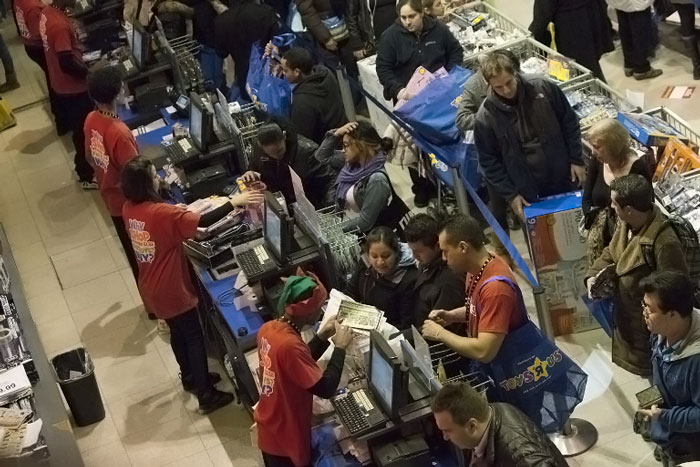
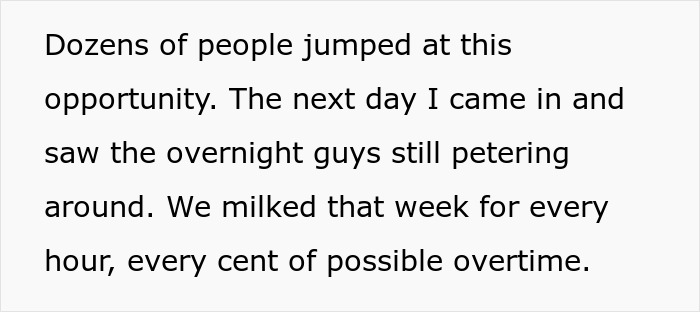
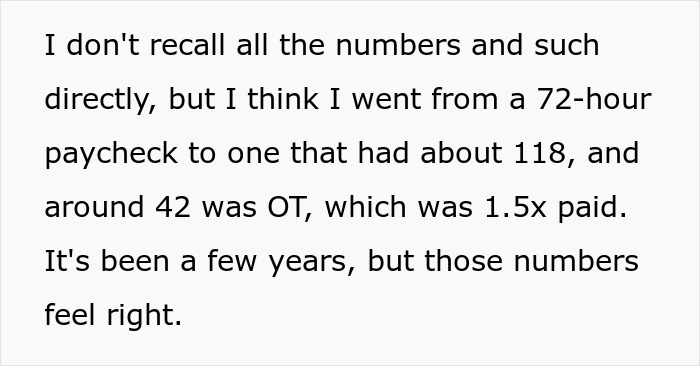
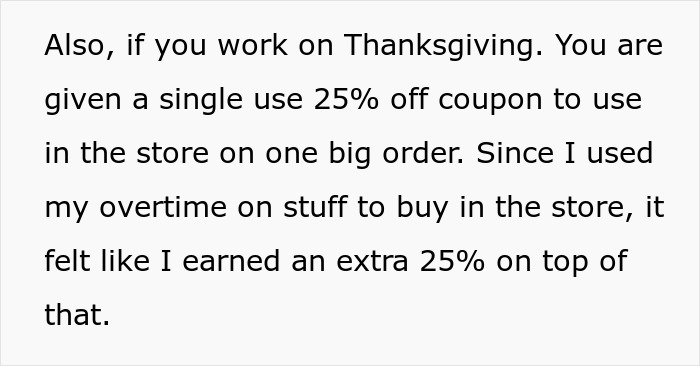
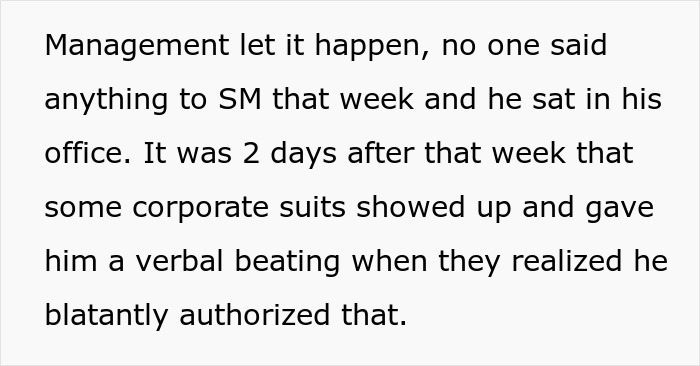



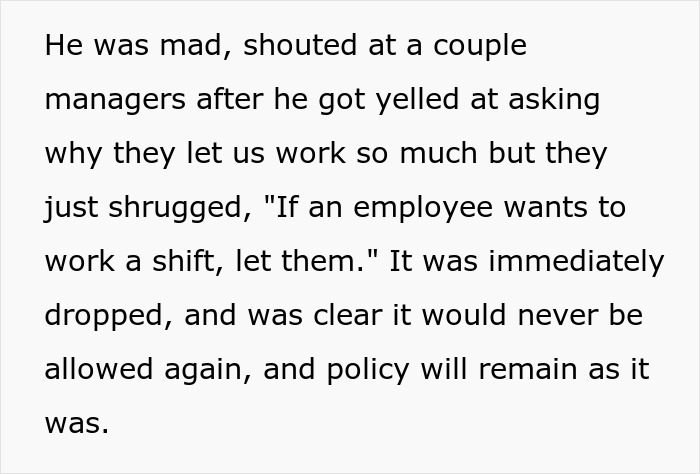
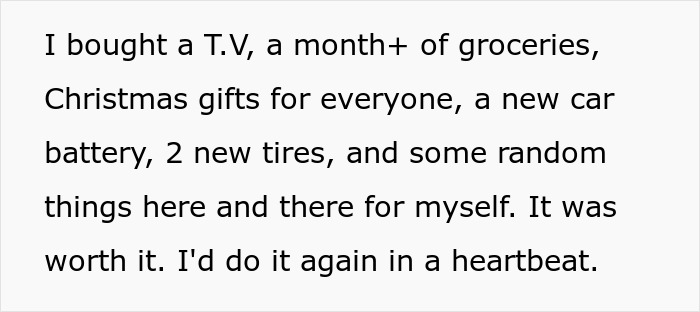



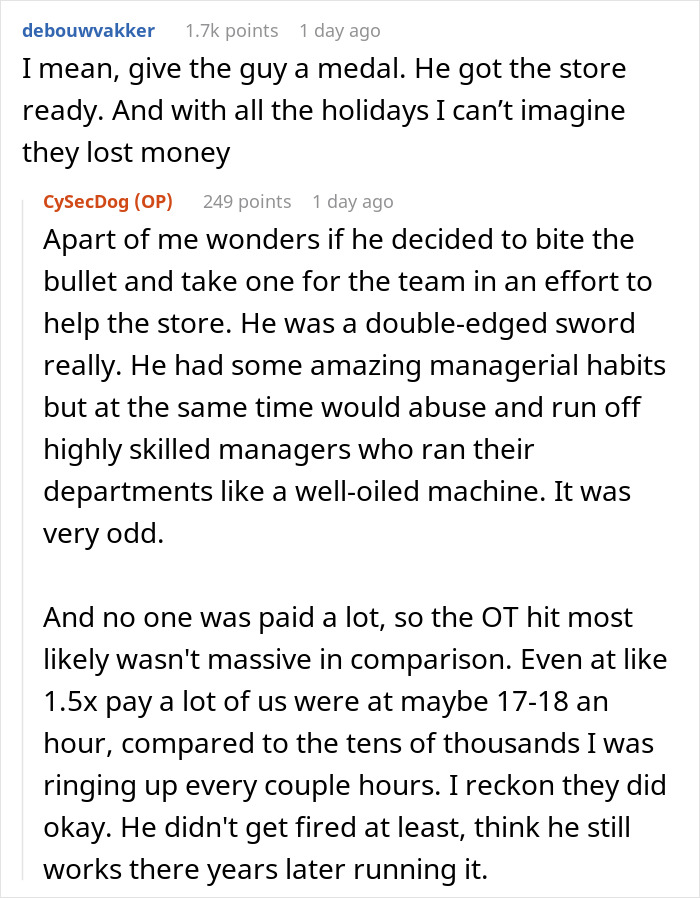
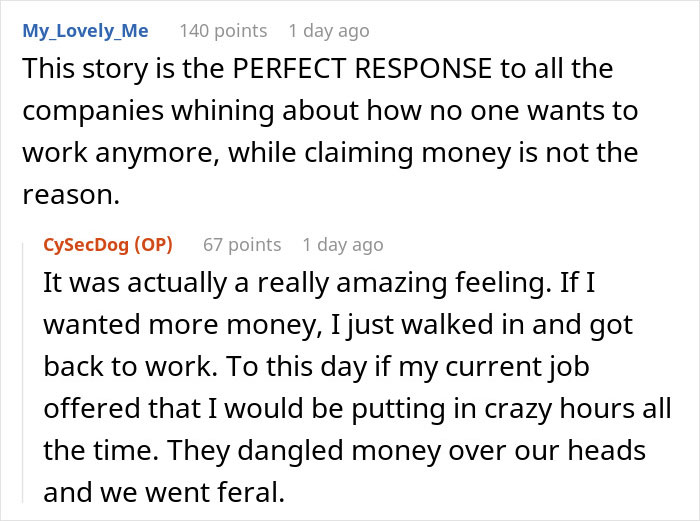
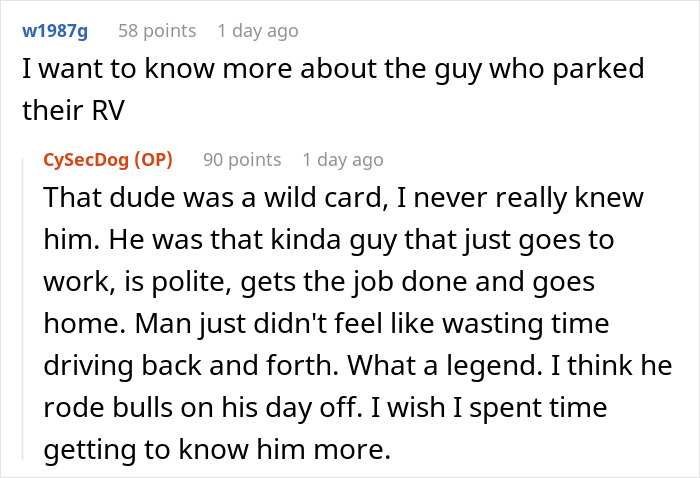
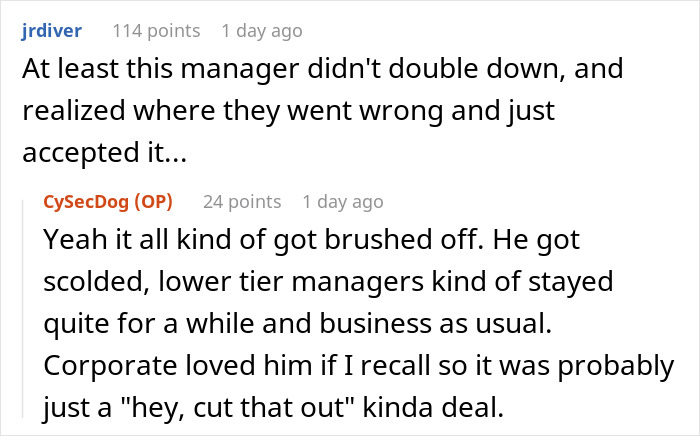
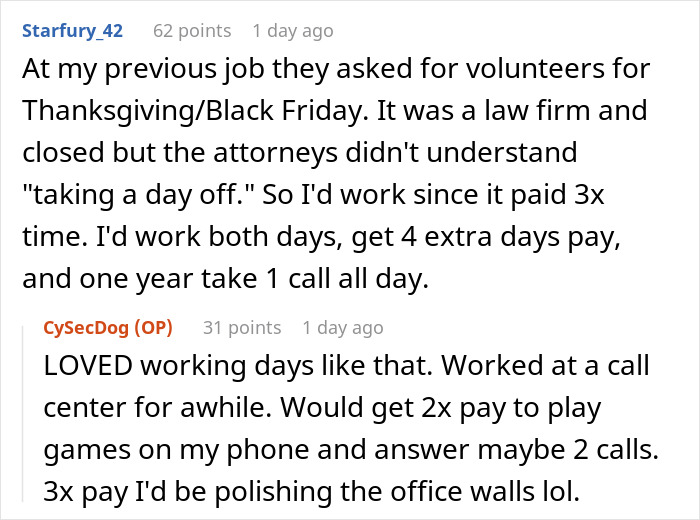
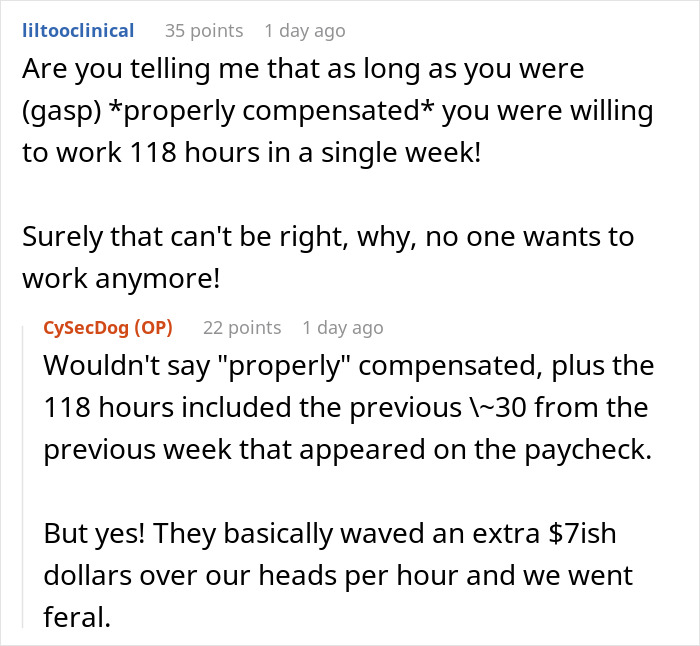
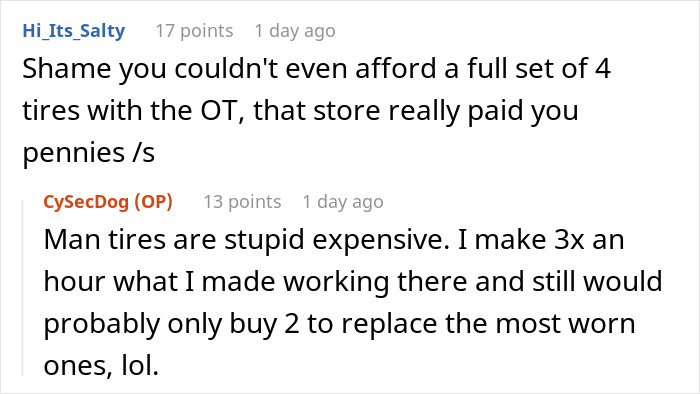
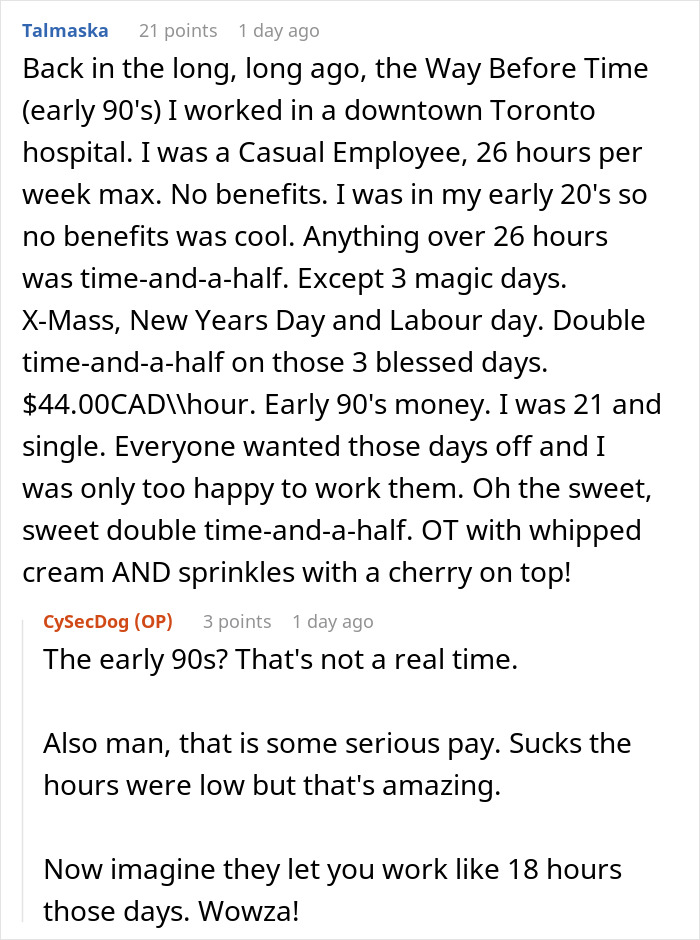
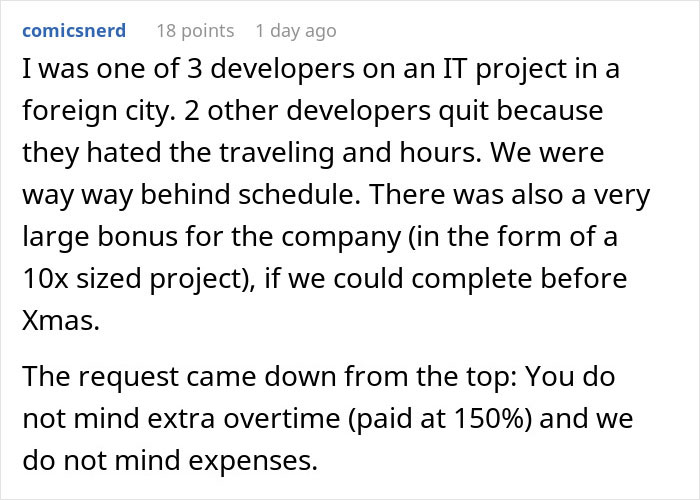
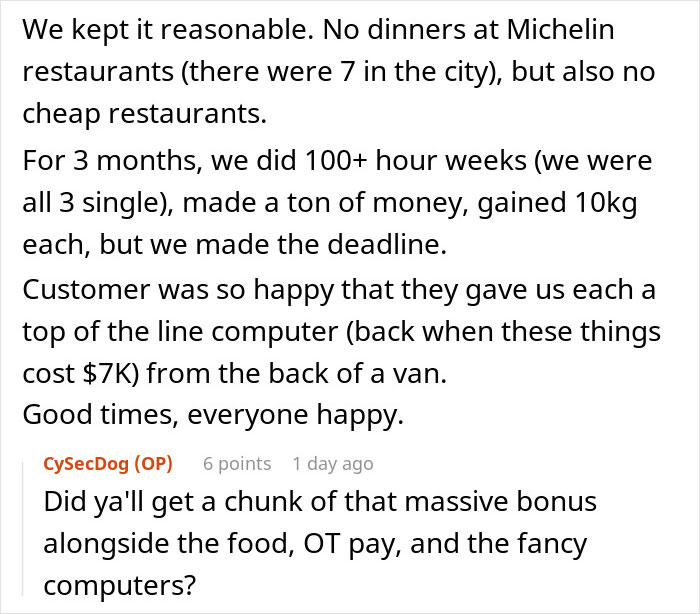
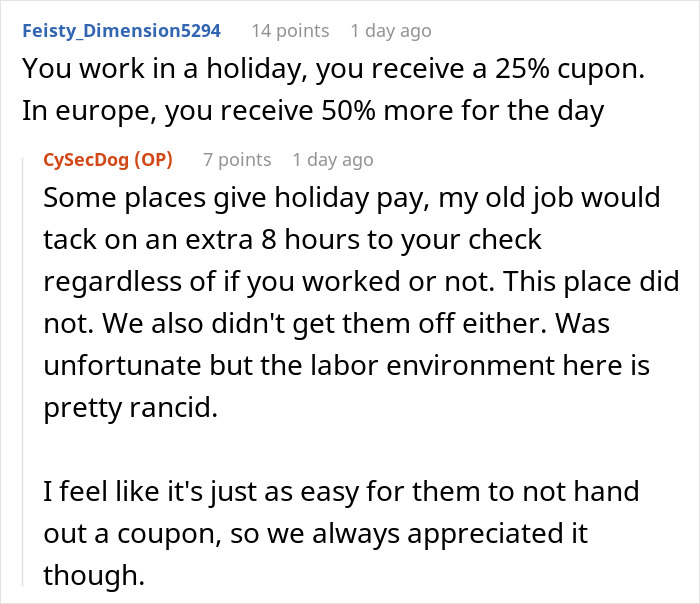




71
16